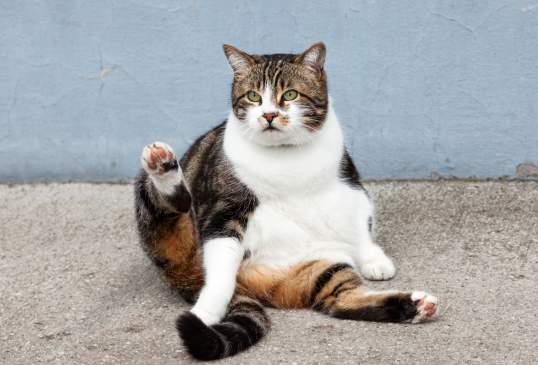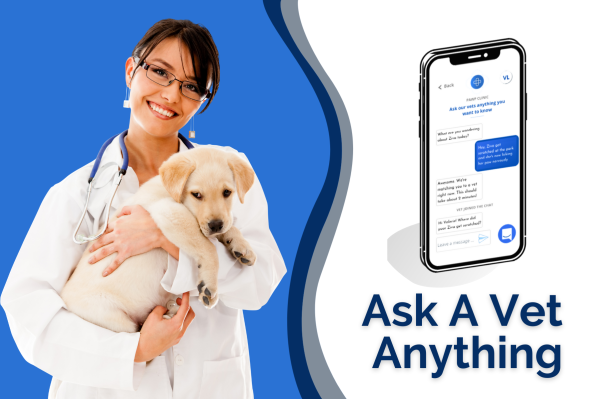Have you ever had a question about your pet you always wanted to ask? Have you ever wanted to know if your dog’s food is healthy enough? Or if your cat’s skin problems means she may be allergic to something? Pet owners have long been turning online for solutions to their most pressing pet questions and problems. But the internet is large — it contains multitudes — and the information it yields is not all created equal. Wouldn’t it be great if you could cut out the middleman and ask a vet for real answers you can actually trust.
Pawp provides 24/7 access to online vets who offer veterinary advice for dog and cat owners. Whether it’s an emergency or a “stupid question,” Pawp’s televets will arm you with the advice or information you need to take best care of your pet. You shouldn’t have to wonder whether your pet is in trouble, contact our vet hotline with any question or concern, big or small, and get the peace of mind you need.
Talk To A Vet Online With Pawp
Every week, Pawp’s online vets will share the most common/interesting questions they receive. If you have a pet question or emergency, reach out and ask our vets anything.
My dog is panting/shaking on and off? What can I do about it?
There are a few reasons your dog could be shaking or shivering: they’re cold, they’re stressed, they’re excited, they’re in pain, they’ve eaten something toxic, or they’re showing symptoms of a larger medical condition. Some of these are more serious than others and can require speaking with a vet.
Read More: Why Is My Dog Shaking?
Context will help determine the cause: Has your dog been playing in snow? Is your dog in a new or uncomfortable situation? Are they limping or showing visible signs of pain? Has this just started or has it been going on a while? Some reasons your dog is shaking are entirely benign, but if your dog is exhibiting other symptoms or the shaking persists, it’s a good idea to talk to a vet. If you’re unsure if you require an in-person visit, talk to a Pawp vet online to avoid paying emergency fees if you can.
Read More: How Much Does The Vet Actually Cost?
How do I get my dog to stop scratching himself?
Dog scratching is normal, and when done occasionally, harmless, but if your dog is scratching because he’s in pain or uncomfortable, he could really hurt himself further. Firstly, we need to identify what’s causing the itchiness and this often requires speaking to a vet. Common reasons include fleas/parasites, environmental allergies, plain old dry skin, or food sensitivities.
Read More: Why Is My Dog Itchy?
Once you and your vet identify the source of the itching, you can solve for it: Collars, oral medication, and topical creams can be used on fleas; dog-friendly allergy medications can be used for environmental allergies; making sure your dog’s diet is nutrient rich enough for dry skin; slowly excluding certain protein sources in your dog’s diet and tracking for food sensitivities. In the short-term, an oatmeal bath never hurt any dog either.
Read More: How Do I Know If My Dog Has Parasites?

I’m making doggie ice cream, is powder goat milk OK for dogs to have?
What a cute idea! When you’re introducing any new foods into your dog’s diet, it’s important to do it slowly no matter what. When it comes to dairy products, many dogs have some form of lactose intolerance — how intense that is really dependent on your pup. Most forms of milk in moderation are a safe (if indulgent) treat for your dog. We suggest letting your dog have a small amount and monitoring their reaction. Is there vomiting or diarrhea? Are they gassy or in pain? If they seem to be reacting well, you can give them more (but not too much).
Read More: 12 Human Foods That Are Toxic To Dogs

I recently switched my cat to a healthier food and now he has diarrhea? What’s happening?
Switching foods is very tricky when it comes to cats. Your cat doesn’t eat the same varied diet you do and his digestive system isn’t as able to adapt to quick changes. This can result in diarrhea, vomiting, constipation, and more. When switching cat foods you should always transition slowly: for the first two days, feed 75% old food, 25% new food; the next two days, bring that to 50/50; the following two days, feed 25% old food, 75% new food. Then your cat’s ready to eat only the new food.
If you did transition your cat slowly to the new food, your cat could also be having a reaction to a new food. You can do a food allergy test or talk to a Pawp vet about how to slowly exclude protein sources in your cat’s diet to track for certain food sensitivities.
